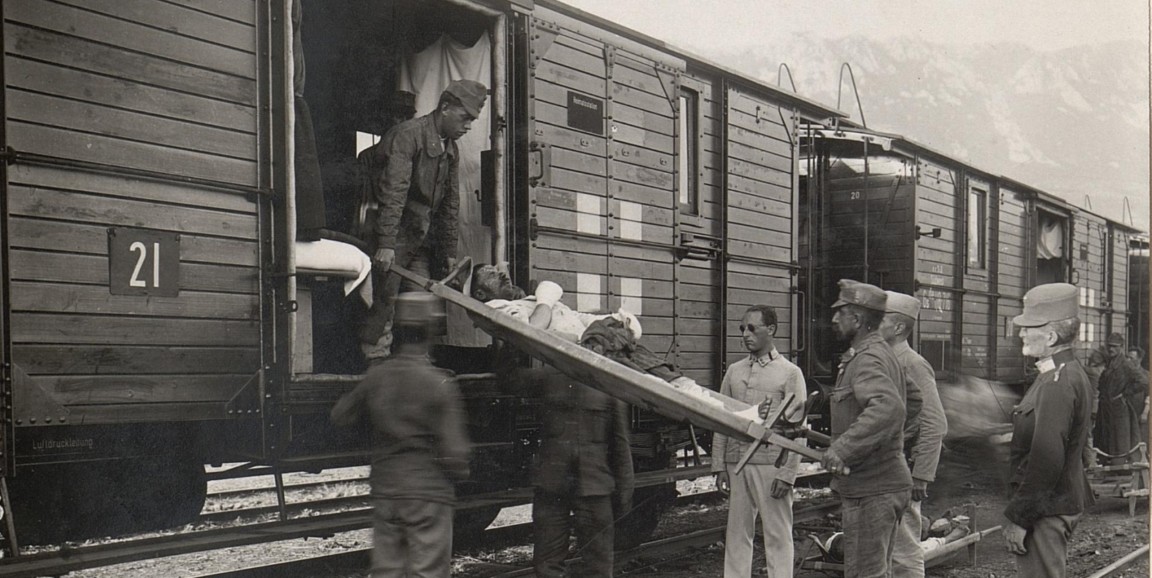Stanford psychiatrist Daniel Mason, MD, wrote his first novel, The Piano Tuner, an international bestseller, when he was a medical student. Mason went on to pursue both medicine and writing, which meant his third novel, published last month, took a full 14 years to complete.
The Winter Soldier — which has received national acclaim — follows 22-year-old Lucius Krzelewski, who leaves medical school in Vienna at the outbreak of World War I to serve as the sole physician at a ragtag field hospital.
I talked with Mason about how in his life, his work, and his latest book, literature and medicine intertwine in fateful ways.
How did your aspirations in literature influence your aspirations in medicine?
Originally, I didn’t know how I would combine the two fields. But as time went on, and during the research for this book, I became increasingly aware of the contributions that the humanities have made and could continue to make to psychiatry.
You teach two classes, "The Literature of Psychosis", and "Culture and Madness", which you co-teach with Stanford anthropologist Tanya Luhrmann, PhD. What can literature contribute to the understanding of mental illness?
There are so many examples. The psychosis and literature class is based on the idea that, in psychiatry, one of the hardest experiences to understand is the experience of psychosis.
But if you read works about psychosis, not only memoirs, but fiction as well, the experience begins to become both more nuanced and complex, but also something less foreign and forbidding. That’s the goal of the class: to humanize the experience, to engage empathy through these extraordinary works.
Your main character is a young physician in wartime. What made that setting especially interesting for you to write about?
In many ways, I feel the novel is a kind of medical coming-of-age novel. The setting of war magnifies certain experiences that all doctors go through, particularly those terrifying moments when physicians realize the depths of their new responsibilities. But this is one reason why I like writing about different places and times: I can find a setting in which to cast a moral dilemma from my life in a sharper light.
One of the conflicts doctors face in wartime is that they are often asked to do something that is against their healing instincts, because curing a soldier and returning him to the front may mean sending him to his death. This complicates our oath to 'do no harm.' I wanted to examine a doctor faced by such choices.
How does your expertise in psychiatry inform your latest novel?
A character with severe mental illness features prominently in the story, and the doctor himself experiences his own kind of breakdown after the war. So it helped to have a background in psychiatry to write about these experiences.
More broadly, I think that psychiatry and fiction ultimately have the same goal — that of understanding another’s mind. Of course, I don’t think it is necessary to be a doctor to write about the internal worlds of others... but, for me, it has helped provide a perspective I didn’t have before.
Was there anything in your research for this book that especially fascinated you?
If I had to pick one it would be how psychiatric expressions of trauma change over time. 'Shellshock,' as described, and even filmed, in WWI, looks very different clinically from post-traumatic stress disorder as it is defined today. Both share a history of trauma, but shellshock was much more somatic, more neurological-appearing, in its presentation.
This is something that Prof. Luhrmann and I discuss often in our undergraduate course: why the expression of psychiatric distress is so malleable and so shaped by culture. When people are suffering they often end up drawing on what historians and anthropologists call ‘symptom pools,’ or ‘idioms of distress,’ meaning that they unconsciously incorporate familiar, local expressions of suffering — either somatic or psychological. So exploring that difference, fictionally, in my novel was deeply compelling.
What drew you to Stanford?
I wanted to come here for residency because I had this sense that the university enabled the kind of cross-disciplinary work I wanted to do.
That turned out to be true in more ways than I had imagined. There is such interdisciplinary enthusiasm across the university. There are few places in the world like it.
Daniel Mason will be speaking at Stanford Bookstore on Oct. 10 at 6 p.m. as part of the Pegasus Physician Reading Series; he will also be in a Stanford Writers in Conversation event with novelist Sara Houghteling (who is also his wife) on Nov. 8 at 7:30 p.m.
Photo of an injured person taken in Vienna in 1917 courtesy of Austrian National Library




